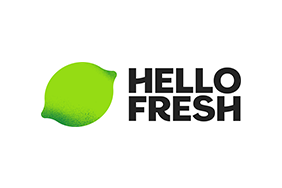HelloFresh Steps Up Fight Against Climate Change and Reveals Results of Global Food Waste Study
Study Finds that HelloFresh Meal Kits Generate 21% Less Food Waste Than Traditional Grocery Shopping
Published 04-22-20
Submitted by HelloFresh
HelloFresh, the world’s leading meal kit provider, has further developed its sustainability strategy and specified the key factors of its own business model to step up sustainability efforts. In its sustainability report, which was published today, the company shows which milestones have already been reached based on the "Sustainable Development Goals" defined by the United Nations. A significant goal of HelloFresh's business model is the reduction of food waste. According to the "Food and Agriculture Organization" of the United Nations, around a third of the food produced is wasted annually, which corresponds to an annual CO2 emission of 4.4 gigatons.[1] Meal kits have the ability to significantly reduce food waste and this is showcased in a Global Food Waste Study, which the company developed together with the Wuppertal Institute, TU Berlin, FH Muenster, the University of Cambridge, Wageningen University and ReFED (an American non-profit activating solutions to reduce food waste). The study found that preparing meals from a HelloFresh meal kit resulted in a global average of 21 percent less food waste compared to the preparation of meals using ingredients bought from the grocery store. In the US specifically, the study found HelloFresh meal kits generate 21% less food waste compared to alternative methods of food preparation.
Significant reduction of food waste
In the world’s largest study on household food waste to date, researchers analyzed the eating and cooking habits of more than 1,100 participants in six international markets in Europe and North America. The scientists took into account both the ingredients used in the preparation and the leftovers after consumption. Consumers often overestimate what they need and tend to overbuy. Pre-portioned meal kits are an effective way to reduce food waste in households. With over 280 million meals delivered to customers in 13 countries worldwide in 2019 and 138 million meals specifically in the US, HelloFresh makes an important contribution towards fighting climate change.
“I am very happy with the progress we have made in terms of sustainability in recent years. We want to offer people a fundamentally more sustainable way to buy and consume food, ”says Dominik Richter, CEO and co-founder of HelloFresh. “By pre-portioning the ingredients for our recipes, we are making a significant contribution to reducing global food waste. At the same time, we also focus on sustainability in our own operations, especially in the areas of production, packaging and delivery. By further developing our sustainability strategy, we are able to continuously double down on our efforts.”
“Reducing food waste is a key element of HelloFresh's sustainability strategy," Jeff Yorzyk, Director of Sustainability at HelloFresh adds. “At HelloFresh, we only order the exact amount of food from the supplier that is actually needed. Less than 1% of food in our production is not used and more than two thirds of this is regularly donated to local food banks. Compared to supermarkets, that is 66 percent less food wasted.”
Aim to further improve carbon footprint
In recent years, HelloFresh has made significant improvements in reducing its carbon footprint. Recently, HelloFresh US announced together with its partner terrapass that it will offset 100% of its carbon emissions that arise in production, delivery and corporate travel. The sustainability report also shows that production in all 17 of the company's production sites only generates about 7g CO2 per US dollar of sales, mainly for lighting and cooling. That is 71 percent less than the average consumption of supermarkets, as HelloFresh does not operate shops. Another essential level is delivery to customers. The boxes are delivered as efficiently as possible and the delivery to customer homes replaces individual trips to the supermarket. In 2019, HelloFresh was able to reduce the number of kilometers traveled every week by 15 percent by optimizing the route planning software in Belgium and the Netherlands, where the company maintains its own delivery fleet.
Capturing the various dimensions of sustainability along the entire value chain from purchasing and production to delivery to customers in very diverse markets is a complex task. The company will continue to double down on its efforts and has committed to report its own progress regularly.
About HelloFresh
HelloFresh SE is the world’s leading meal-kit company and operates in the U.S., the United Kingdom, Germany, the Netherlands, Belgium, Luxembourg, Australia, Austria, Switzerland, Canada, New Zealand, Sweden and France. In 2019, HelloFresh delivered over 280 million meals and reached close to 3 million active customers in the fourth quarter of 2019. HelloFresh was founded in Berlin in November 2011 and went public on the Frankfurt Stock Exchange in November 2017. HelloFresh has offices in New York, Berlin, London, Amsterdam, Sydney, Toronto, Auckland, Paris and Copenhagen.
Contact


